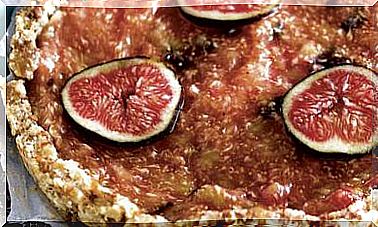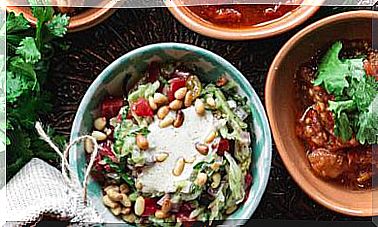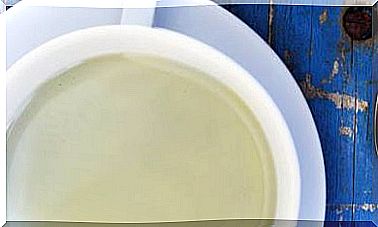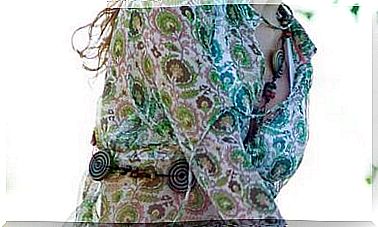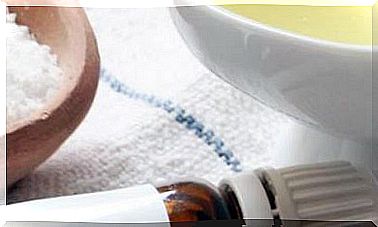Vegetable Soft Diet: Tips And Weekly Menu To Do It Right
If you have to go on a soft diet for a few days, these basic guidelines will help you. You can also download a weekly menu with recipe ideas to help you recover well.

Surely that soft diet sounds like rice, puree and soup to you. And if you follow a plant-based diet, it is possible that when it was recommended you have found yourself in the situation of not eating anything but white bread for a few days.
The soft diet is a diet designed to give the digestive system a rest, to give it little work and to allow it to recover. It is usually recommended when suffering an episode of diarrhea or gastroenteritis, in outbreaks of inflammatory bowel diseases, after surgery … That is why it is an easy to digest diet, low in fiber and fat.
We are going to see how to configure a soft diet pattern adapted to plant-based diets, so that you do not find yourself in this situation the next time you have to follow a soft diet. And, if it has not happened to you, you are also interested, since normally there is always some time in our life when we will need to follow a soft diet due to a health problem, such as gastroenteritis. But remember! Always do it with the approval of your doctor or nutritionist.
I will also give you a weekly menu for a soft diet. It will be the professional who takes you who must determine how many days it is convenient for you to follow it. In my proposal I offer you three days of a strict soft diet and the rest of the week we will gradually reintroduce withdrawn foods to return to normal, but letting the digestive system finish recovering. In the last days we will also introduce recipes that help to restore the intestinal flora.
- You can download the weekly menu for soft diet here.
How to diet bland without eating meat or fish
The problem when following a vegetable or preferably vegetable diet is that many times, when we are given information on how to make a soft diet, the pattern has not been adapted to make it compatible with a diet that dispenses with foods of animal origin. But it is interesting to have options to be able to follow her and find ourselves well.
We must bear in mind that there is a big difference between a soft diet and a low-residue diet. The latter is used to cleanse the colon, usually for a colonoscopy-style test, and the guideline is a diet low in fiber, fat, and lactose.
Foods to Avoid
It is common to exclude legumes from bland diets and also from low-residue diets. But there are also other foods that must be eliminated.
- Whole grain cereals and breads.
- The spices and salt.
- The fresh fruit, minus the ripe banana.
- The raw vegetables.
- Whole legumes.
- The chocolate.
- Crucifers (goodbye broccoli and cauliflower for a few days!).
- The pastries, if we take it.
- The nuts, also in cream.
In an ovo-lacto-vegetarian diet, it must be taken into account that not all dairy products are recommended.
In a vegan diet, vegan cheeses and cold cuts are also restricted, either because they are ultra-processed or because of their high fat composition.
Although we will not eliminate fats completely, we will have to minimize oil and fat consumption, even if they are healthy. Those that we can consume, in very small quantities, will be given by olive oil, rapeseed oil, quality vegetable margarines and avocado.
Allowed foods
In a vegan diet these are the foods you can eat to follow a soft diet:
- Refined cereals and flours, such as white bread, conventional pasta, or white rice.
- Shredded cooked legumes, especially peeled ones. We will not be able to make a hummus because the tahini is very fatty, but the purees of legumes are suitable.
- Cooked or pureed vegetables.
- The white tofu, avoiding smoked and seasoned, grilled.
- Natural vegetable yogurts without sugar, avoiding the Greek type, prioritizing that they are low in fat.
- The seitan without spice.
- Plant milks, especially rice milk, for being the most digestive. Soy milk is not recommended.
- Vegan protein powder. This is an option that can also be taken into account in diets without residue, which are often complicated when following a vegan diet.
- Fruit in compote or baked.
- Banana, as long as it is very ripe.
- Vegetable broth.
- Light soups with white rice or pasta.
Other tips for a bland diet
It is not only important to know what can be eaten, but also how we eat it.
- We want the stomach and digestive system to work as little as possible, so we must avoid large meals. It is better to eat a small amount, as many times as necessary, and chew calmly.
- Food should not be too cold or too hot; always better at room temperature or warm.
- If we have been prescribed a soft diet, it will be because we have a digestive problem, probably gastroenteritis. In these cases, it is normal to eat much less than usual, but it is equally important to stay hydrated. Filtered juices, soft broths and water will help us do this.
- In addition, it is important to eat with conscience, prioritizing those foods on the list that feel best to us.
- Although variety is one of the maxims for good health in nutrition, in this case we seek the opposite: to focus only on foods that bring us calm and well-being.
Purees are your great allies so that these days you can consume vegetables. We cannot add margarine, creams or cheese to obtain a creamier texture. However, you can add cooked potato or rice to them.
Exactly the same as soups, which must be made from mild vegetable broths, without fat. Cook the potato and rice with this broth, so that the starches remain in the soup, it is highly recommended and digestive.
Although the soft diet does not imply that all foods are soft, it is true that most tend to be. Do not forget to chew well during the days that you have to follow this guideline. You can eat bread between meals, with a thin layer of avocado or margarine, or with homemade fruit compote, without sugar. Pasta is also a good option to chew, although we have to consume it without sauces or spices.
Weekly menu: 3 days of soft diet + 4 days of recovery
In the weekly menu that I propose this time we do not start on Monday, but the day you should start your soft diet (day 1).
On days 1, 2 and 3 you will be strictly complying with a soft diet adapted to a vegan diet : we will base the breakfast, lunch and dinner proposals on the foods allowed in a soft diet and we will dispense with the prohibited foods. During these days we will be giving the digestive system a good rest.
On the fourth day, with the digestive system already more recovered, we would begin to introduce other foods or cooking and some raw vegetables, but little by little, to give the body time to adapt and also see how you feel.
Finally, we will add probiotic and prebiotic foods to improve intestinal health while taking care of the microbiota.
In the downloadable menu you will find a one-week soft diet guideline, but remember that the soft diet should not be followed without justified reason and that it should always be reviewed and authorized by a reference healthcare professional.
